CALL FOR PAPERS ISUFitaly 2018

CALL FOR PAPERS
The city is an "organism in the making", an entity in constant transformation, not a complex of immutable elements. The city represents the entire human experiential field of the world, considered as expression of a "fundamental movement of existence" in its completeness and historicity, expressed by the formative structure of tissues and building types, by the urban hierarchies, by the relations with the territory, by the social relations, and by the values and criticalities.
The conference’s aim is to propose a dialectical comparison between scholars of Architecture, Urban Planning, Urban History, Restoration, Geography, on the theme of urban morphology with an interpretative perspective based on the concept of "operating history". Search for a multidisciplinary syncretism that eludes single analyzing techniques and aims to the complete reconstruction of the urban phenomenology in its totality and concrete essence, through the study of the changing and inflexible condition of ‘fluidity’ hinged on the world’s events. An integrated thought based on the critical concept of ‘making’ that constitutes, phase by phase, the signifying element of each present, explained through the relationship between the before and the after: that is the research perspective of ‘being’ that announces the notion of transformational process.
Therefore, the projection in the future of the urban form is the central theme of the conference that proposes to stimulate the reflection on the issues as: recovery (not only of the historical city), re-use of existing urban spaces, regeneration, ex novo design in peripheral and peri-urban areas and natural spaces. All that, without neglecting the issue of sustainability, not considered with the strabismus of those who surrender to the "technique" pre-domain.
Themes:
THEORY
1. Urban form theories
2. Urban form between identity and spatial semantics
3. Contemporary urban spaces between form and process
4. Urban form between architecture and landscape
5. In making structural or timeless paradigm?
READING
1. Form and structure of the historical city
2. Urban morphology and settlement process
3. Relation between periphery and natural space
4. Structure of the informal city
5. Metropolis and megalopolis in the making
DESIGN
1. Today's city and future shape
2. Urban restoration and post-trauma re-construction between conservation and innovation
3. Fringe belt riqualification
4. The urban project between city and nature
5. Ecological urban environments
The organizers invite participation by interested academics and professionals. Proposals for papers should take the form of abstracts of papers. They should be prepared in the following format: title of paper, author(s) name, affiliation, full postal address, e-mail address, telephone number, 3-5 key words, conference topic/scale and a 250-word abstract, in a MS Word file (.doc) using the abstract template available on the website (font: Times New Roman). Proposals should be uploaded on the conference site after registration.
Main deadlines:
Abstracts must be received before the 30th of March 2018
Notification of whether abstracts have been accepted will be provided by the 28th of April 2018
Once abstracts have been accepted will be required to pay a registration fee by the 12th of May 2018 in order to have their papers included in the conference program. The registration fee of €180 (students: €100) includes conference cocktail and coffee breaks.
The final papers (not exceeding 4000 words) should be received by the 9th of June 2018. Authors should consult the notes for the guidance of contributors to Urban Morphology, available on the ISUF website (http://www.urbanform.org), or in recent copies of that journal, before preparing their papers. All the papers will be published after the conference with ISBN or ISSN. The official conference language is English.
More info at: http://rome2015.isufitaly.com/index.php?conference=bari2018&schedConf=Ba...



